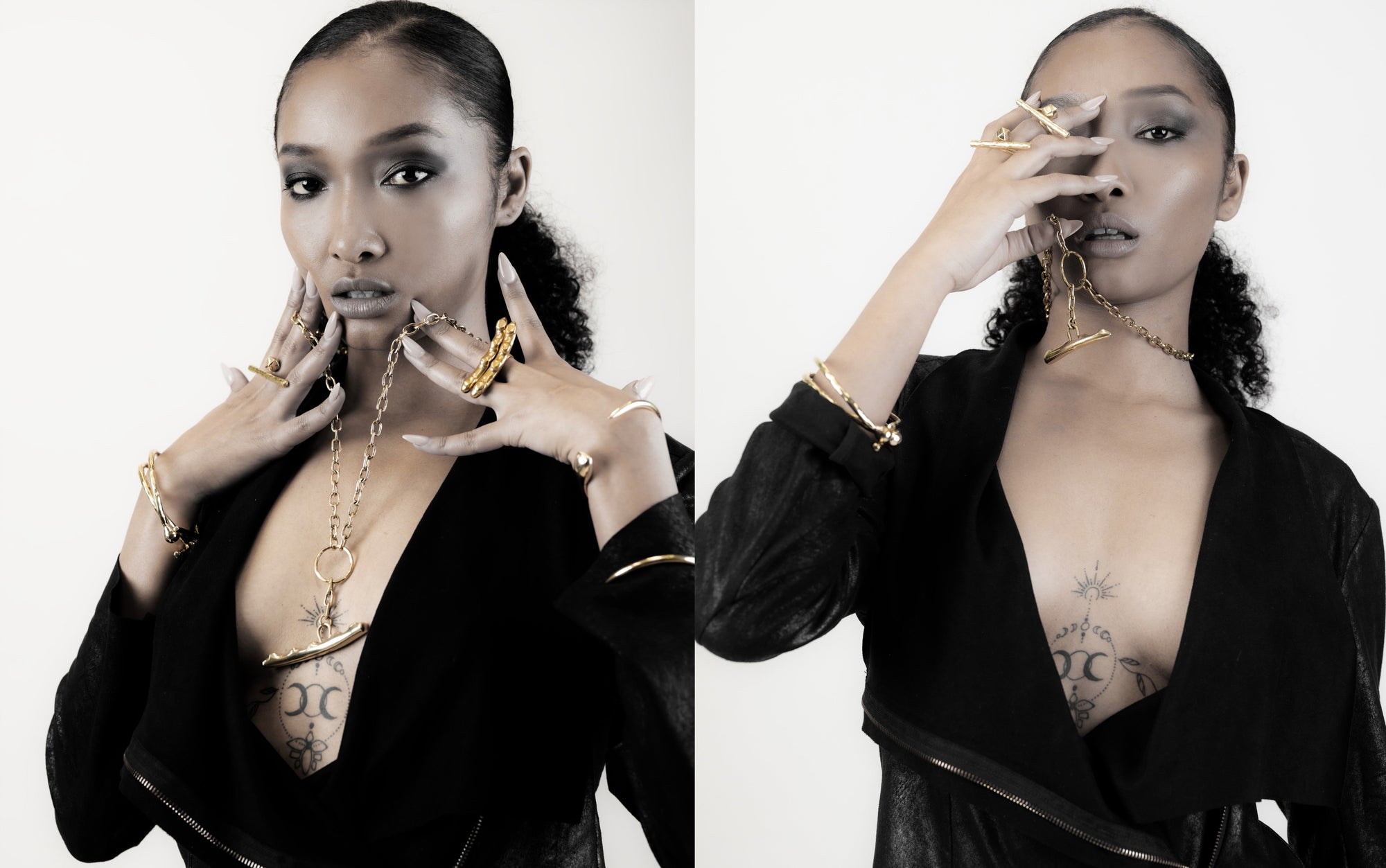Adele Dejak on Ethical and Sustainable fashion
Posted by Mary Bosibori on
Elephant ivory has always been in high demand in the fashion accessories industry due to its texture, desirability and durability. In Kenya, a ban on the ivory trade has been in effect since 1969. However, the trade has continued illegally and this has led to devastating effects on the elephant population. A report in 2012 by the Kenya Wildlife Service estimates the elephant population to stand at 38,000. But on the upside, poaching in Kenya is down to 46 from 390 elephants killed in 2013.
China, the world’s largest ivory market, has only recently placed a ban on the trade. This move has been commended by conservationists and governments alike, most notably our own. We think it’s fantastic and farsighted and will go a long way in protecting elephants which are endangered and near-extinct in most countries.
Adele Dejak uses organic or recycled locally-sourced materials to actualize her designs. The only animal products she uses are the cow horn and the cow hide, which are byproducts of the meat market. Cow horn is vibrant, smooth and has a naturally glossy finish. It blends modern and traditional aesthetics. In Africa, cows symbolize status and their horns are considered regal, sacred and pure.
We mostly work with the Ankole cow horn which is long, strong and stunning. we get the horn in it’s raw form and after it’s gone through all required quality checks, the artisans handcraft it and transform it into wearable art pieces.
Previously, the thought of sustainable fashion evoked images of stringy rope and dried up seeds. But perspectives and practices are evolving and we are glad to be part of the conversation.
Visit our online shop to browse our collections of handmade, cruelty-free accessories and follow us on instagram to continue the conversation



